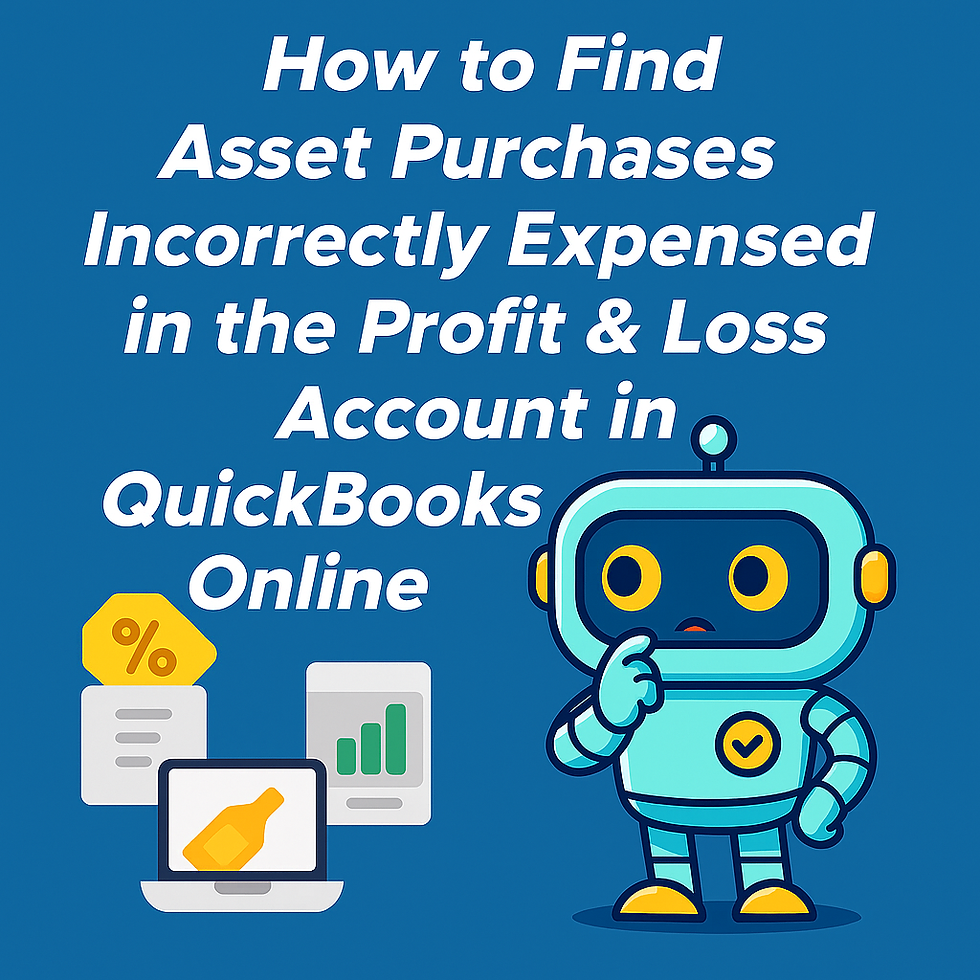Maximize Efficiency or Risk Obsolescence: Why You Can’t Afford to Ignore Tech in Accounting
- Sep 30, 2024
- 3 min read
In today’s rapidly evolving financial landscape, clinging to outdated methods isn’t just inefficient—it’s risky. The days of manually entering data and double-checking transactions are fading fast. As technology advances, accountants and bookkeepers who fail to adapt may find themselves at a real disadvantage—not just losing clients but potentially becoming unemployable.

Here’s why sticking to the "old ways" could be putting your career and business at risk:
1. Manual Processes Are a Liability, Not an Asset
Relying on manual methods for bookkeeping is a ticking time bomb. It increases the likelihood of errors—misclassified expenses, duplicate transactions, or missing bill numbers—errors that could have serious consequences for both you and your clients. By ignoring tech tools that automate error detection, you’re risking not just mistakes but also your reputation. Clients expect accuracy and speed, and if you can’t deliver, they’ll find someone who can.
2. Wasting Time on Low-Value Tasks
If you’re still spending hours combing through transactions manually, you’re missing out on the chance to add real value to your clients’ businesses. Technology tools that provide daily alerts on issues like transactions posted to a closed period or missing vendor information free you from repetitive tasks. Without these tools, you’re not only wasting time but also failing to provide the strategic insights that clients now expect. This makes you less valuable—and ultimately, replaceable.
3. Falling Behind on Client Expectations
Clients are becoming more tech-savvy and expect their accountants to keep up. They want instant updates, real-time data, and proactive advice. If you’re relying on old-school methods, you’re likely to fall short of these expectations. Tools that offer real-time alerts on potential issues, like negative vendor balances or unreconciled bank deposits, show clients that you’re on top of their financial health. Without them, you risk being seen as outdated and out of touch.
4. Putting Compliance and Your Career on the Line
Regulatory compliance is more challenging than ever, with rules and tax laws constantly changing. Without the help of technology to flag potential issues—such as transactions in closed periods or incorrect journal entries—you’re putting both your clients and your career at risk. Non-compliance can lead to penalties, fines, or even legal issues. Staying stuck in the past means risking not just your clients’ money but your professional standing.
5. Losing Competitive Edge and Clients
In a world where automation is key, firms that don’t adapt will lose out. Clients are looking for firms that are agile, proactive, and technologically advanced. If you can’t offer that, you’re losing more than just clients—you’re losing your place in the market. Embracing new tools shows you’re a forward-thinking professional ready to meet the challenges of modern accounting. Staying stagnant? That’s a fast track to irrelevance.
6. Future-Proofing Your Career is Non-Negotiable
The accounting world is transforming. Remote work, digital payments, and cloud-based platforms are here to stay. Refusing to adapt isn’t just an inconvenience; it’s career suicide. By not adopting tech tools that provide real-time alerts, customizable insights, and cloud-based access, you’re making yourself less employable in a market that values innovation and efficiency above all else.
Conclusion: The Cost of Staying Stagnant
The choice is clear: evolve or risk becoming obsolete. The tools are out there to help you catch errors, save time, stay compliant, and impress your clients. Failing to embrace these changes doesn’t just make you less efficient—it could make you unemployable in the future.
So, if you’re still stuck in the past, it’s time to wake up and move forward. Start exploring tech solutions that can enhance your practice and ensure your skills remain relevant in the years to come. Click here to sign up today!



